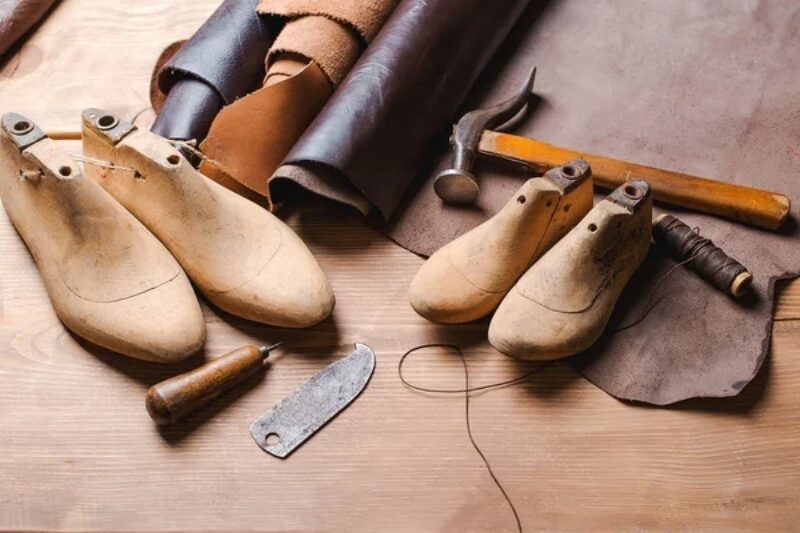Woman shoemaker says people look down on her but she has taught many formerly unemployed internally displaced persons to become self-reliant businesspeople
Being a cobbler in Borno State is not really regarded as the type of work women should do – but that hasn’t stopped Maryam Muhammad Umar, whose shoemaking business is thriving.
Umar, who is 25 and lives in Maiduguri, started her cobbling career during the years of the insurgency in 2017.
Since then she has mentored many people – mostly internally displaced young people and those living in host communities – and has taught them to become skilled cobblers.
“I began make shoes in 2017 and, for the past seven years, I have taught a lot of young people – probably about 250 – to become cobblers. If I see a young person sitting idle, I encourage them to join me so that they can learn to make shoes and start their own businesses. The unusual thing is that I have taught many young women to become cobblers, not just men. I am constantly looking for better ways to improve my business.
“It is an excellent job – after all, everyone needs shoes. So it’s a good way to make money. Now the people I taught are self-reliant, whereas before they did not have any education or skills to start a business. Over the years I have taught many people. At the moment I am teaching 11 people.
“I feel good about my business. I make my own money, I teach people skills so they can make money. These are people who often have not been to school and have lived their lives in displaced persons’ camps. The only way they could make money was to beg on the streets. I feel as if I have empowered the young people who come to me for training.”
Umar told RNI that it was tough starting a business while the insurgency was raging.
“Borno State was the epicentre of the conflict. But somehow, I got through it and it has been growing ever since. I feel good that I was able to recruit young people and they now have sustainable livelihoods.”
She said her main problem was that culturally, it was not really acceptable for a woman to become a shoemaker and some people “look down on me and my work”.
“Often people talk negatively about my shoe business because I am a woman. It’s a cultural thing. Shoemaking is very much a male-dominated job. Some people look down on me because they think a woman should not do this kind of business. Only a very few people have given me their support. Still, even after being successful for seven years, there are people who don’t support my choice of work. They don’t realise I am also studying to complete my degree. I hope to become a chartered accountant.
“In other states, women are free to do whatever they choose to make money. No one looks down on them if they are cobblers. Sometimes it gets me down that people do not accept me because I do a ‘man’s job’. I wish they would not bring gender into it. They say things that are hurtful and they bring down my reputation. But I know that I am doing a good job and it is gratifying to know that I have trained and helped many young people to become independent and self-reliant.
“I have customers from other states now and more people from Maiduguri are beginning to come to me because they see I know my job and I am good at it.”









